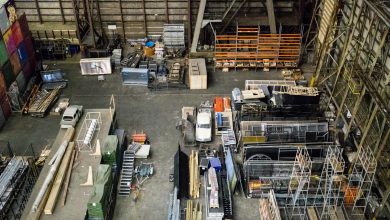The Ultimate Guide to Choosing a Laptop Hard Disk
Laptop Hard Disk

The importance of choosing the right hard disk for a laptop
Choosing the right hard disk for a laptop is crucial because it can significantly impact the laptop’s performance, storage capacity, and durability. Here are some reasons why it is important to select the right hard disk for a laptop:
Performance:
The hard disk is responsible for storing and retrieving data, and the speed at which it can perform these operations affects the laptop’s overall performance. Faster hard disks with higher RPMs can access data more quickly, resulting in faster boot times, faster application load times, and faster file transfers.
Storage capacity:
The hard disk’s storage capacity determines how much data the laptop can store. A larger hard disk allows for more storage space, which is important for users who need to store large files, such as videos or high-resolution images.
Durability:
The hard disk’s durability is also an essential factor to consider. A hard disk with better durability can withstand physical shocks and vibrations, making it less likely to fail and lose important data.
Power consumption:
Some hard disks consume more power than others, which can affect the laptop’s battery life. Selecting a hard disk with lower power consumption can help extend the laptop’s battery life.
Form factor:
Laptops come in various sizes, and the hard disk’s physical size must match the laptop’s form factor. For example, if the laptop is an ultrabook or a thin and light model, a smaller and thinner hard disk may be required.
Factors to Consider When Choosing a Laptop Hard Disk
When choosing a hard disk for a laptop, there are several factors to consider, including:
Storage capacity:
The storage capacity of a hard disk is an essential factor to consider. Laptops come with various storage options, ranging from 128GB to 2TB or more. Consider the amount of data you need to store and choose a hard disk with enough storage space.
Speed:
The speed of a hard disk is measured in RPMs (revolutions per minute). Faster RPMs mean faster data access and transfer speeds. Choose a hard disk with higher RPMs for faster performance.
Form factor:
Most laptops use 2.5-inch hard disks, while some ultra-thin laptops use smaller M.2 or PCIe SSDs. Ensure the hard disk you choose is compatible with your laptop’s form factor.
Durability:
Laptop hard disks are susceptible to physical damage due to drops, bumps, and shocks. Choose a hard disk that is designed to withstand physical damage and has features such as shock resistance and vibration tolerance.
Power consumption:
Hard disks can consume a significant amount of power, which can impact battery life. Choose a hard disk with lower power consumption to extend your laptop’s battery life.
Price:
Laptop hard disks come in a range of prices, from budget options to high-end models. Consider your budget and choose a hard disk that provides the best value for money.
How to Upgrade a Laptop Hard Disk
Upgrading a laptop’s hard disk can improve the laptop’s performance and storage capacity. Here are the general steps to follow when upgrading a laptop hard disk:
Back up your data:
Before upgrading, ensure you back up all your important data to an external hard drive, cloud storage, or another computer. This is important to ensure you don’t lose any data during the upgrade process.
Choose a new hard disk:
Select a new hard disk that meets your requirements in terms of storage capacity, speed, and form factor. Ensure the new hard disk is compatible with your laptop.
Prepare the laptop:
Shut down the laptop and unplug it from the power source. Remove the battery if possible. Ensure you have the necessary tools to access the hard disk. Refer to the laptop’s user manual for instructions on how to remove the hard disk.
Install the new hard disk:
Remove the old hard disk and replace it with the new one. Connect any necessary cables and ensure the hard disk is securely in place. Close the laptop casing.
Install the operating system:
If you are upgrading to a new hard disk without an operating system, you will need to install one. You can do this by using the installation disc that came with your laptop or by downloading the operating system from the internet.
Restore your data:
Once the operating system is installed, you can restore your data from the backup. This can be done by transferring the data from the external hard drive, cloud storage, or another computer.
Test the new hard disk:
Finally, test the new hard disk to ensure it is functioning correctly. Check the storage capacity, transfer speed, and overall performance.
Troubleshooting Common Issues with Laptop Hard Disks
Laptop hard disks can experience a range of issues that can affect their performance and functionality. Here are some common issues you may encounter with a laptop hard disk and troubleshooting steps:
Slow performance:
If the laptop’s hard disk is slow to access files or load programs, this could indicate a problem with the hard disk. Check for any software or operating system issues that could be causing the slow performance. Check for any unneeded programs or files and delete them to free up space. If the problem persists, you may need to consider upgrading the hard disk.
Clicking or grinding noise:
If the laptop’s hard disk is making a clicking or grinding noise, this could indicate a physical problem with the hard disk. This could be caused by the read/write head hitting the disk or a malfunctioning motor. Back up your data immediately and replace the hard disk as soon as possible.
Hard disk not detected:
If the laptop cannot detect the hard disk, check the connections between the hard disk and the motherboard. If the connections are loose, tighten them. If the connections are fine, the hard disk may be malfunctioning or damaged.
Corrupted data:
If the laptop’s hard disk is storing corrupted data, this could be due to software or hardware issues. Check for any virus or malware infections and remove them.
Bad sectors:
If the laptop’s hard disk has bad sectors, this could cause data loss and system crashes. Use a disk utility program to scan for and repair any bad sectors. If the problem persists, back up your data and replace the hard disk.
Conclusion
In conclusion, choosing the right hard disk for a laptop is important as it affects the laptop’s performance and storage capacity. Factors to consider when choosing a laptop hard disk include storage capacity, speed, form factor, and interface. Upgrading a laptop’s hard disk can improve its performance and storage capacity. To upgrade a laptop hard disk, back up your data, choose a new hard disk, prepare the laptop, install the new hard disk, install the operating system, restore your data, and test the new hard disk. Common issues with laptop hard disks include slow performance, clicking or grinding noise, hard disk not detected, corrupted data, and bad sectors. Troubleshooting these issues involves identifying the issue and taking the necessary steps to resolve it, which may include software or hardware checks, virus scans, repairing bad sectors, or replacing the hard disk.




